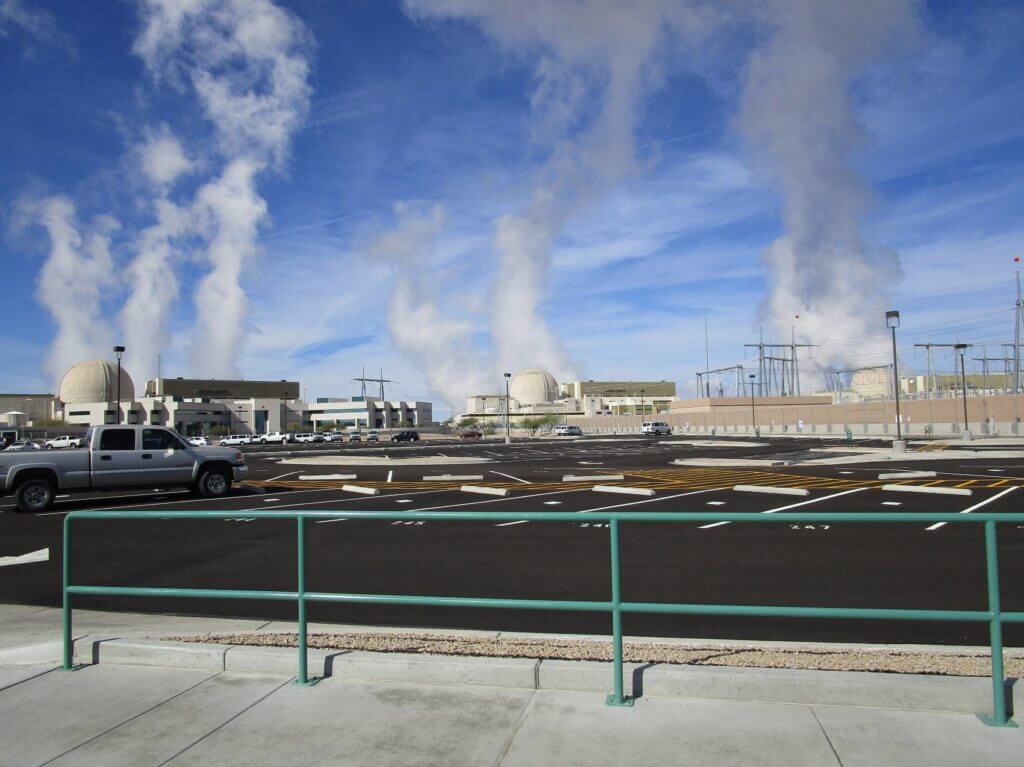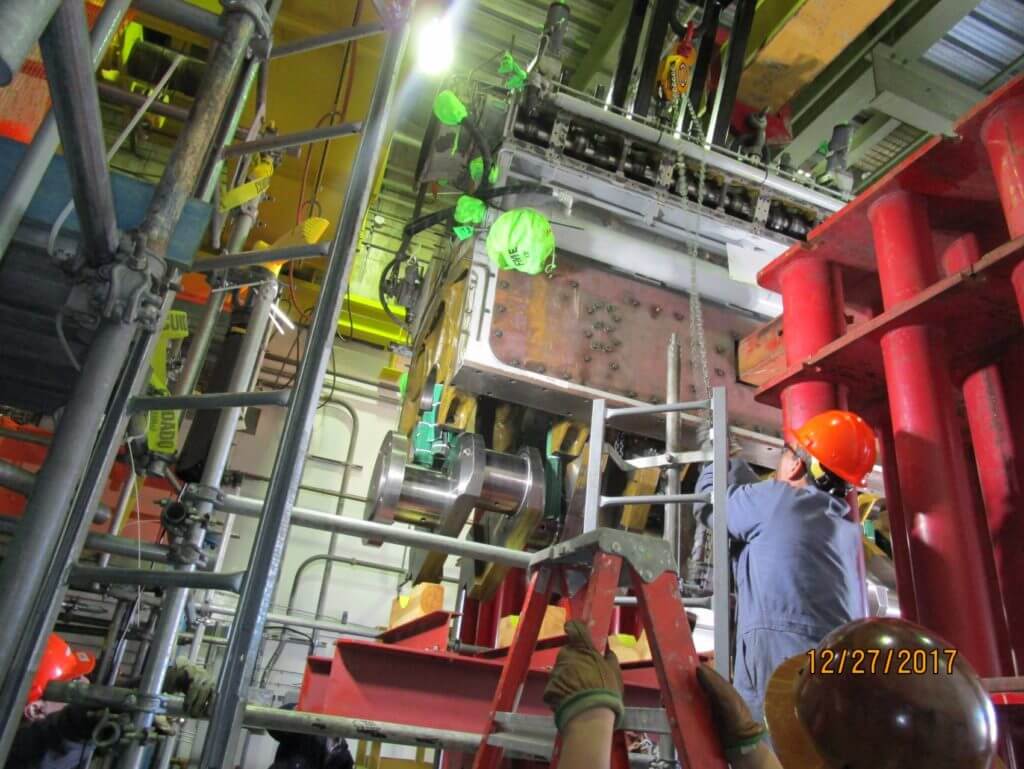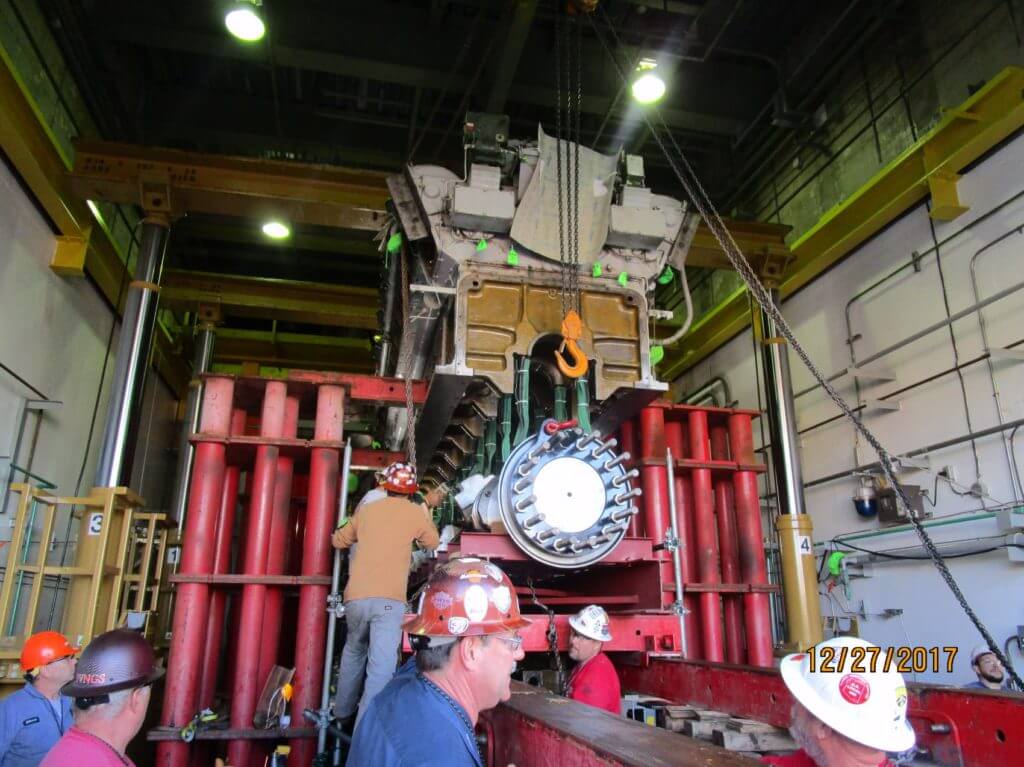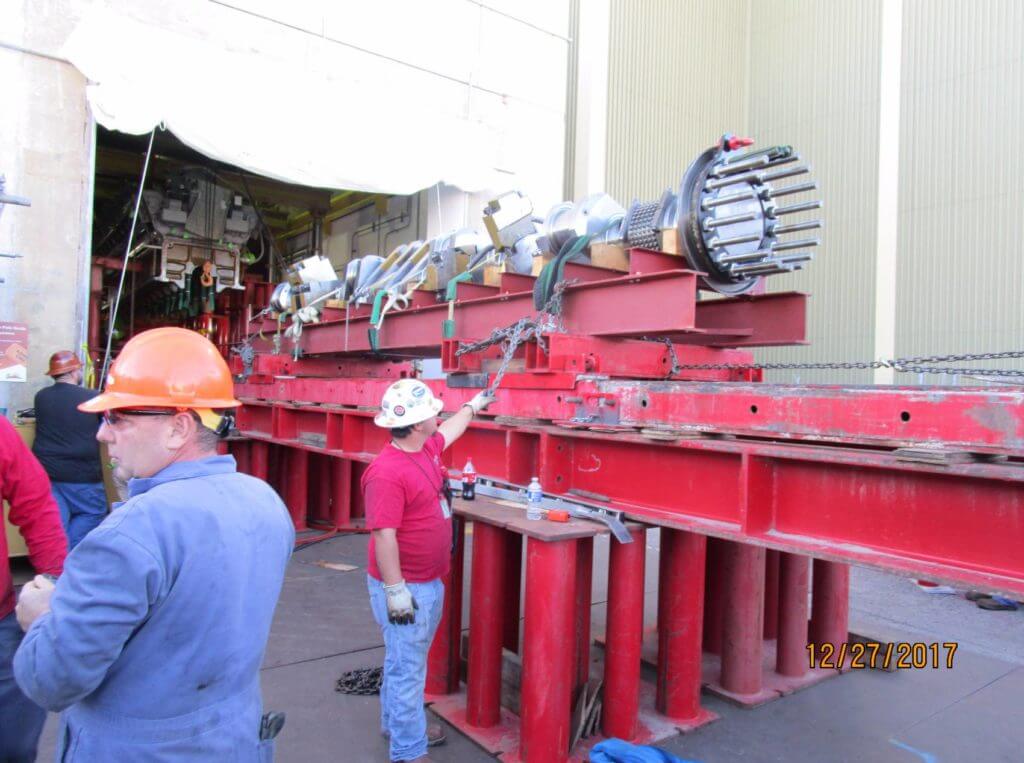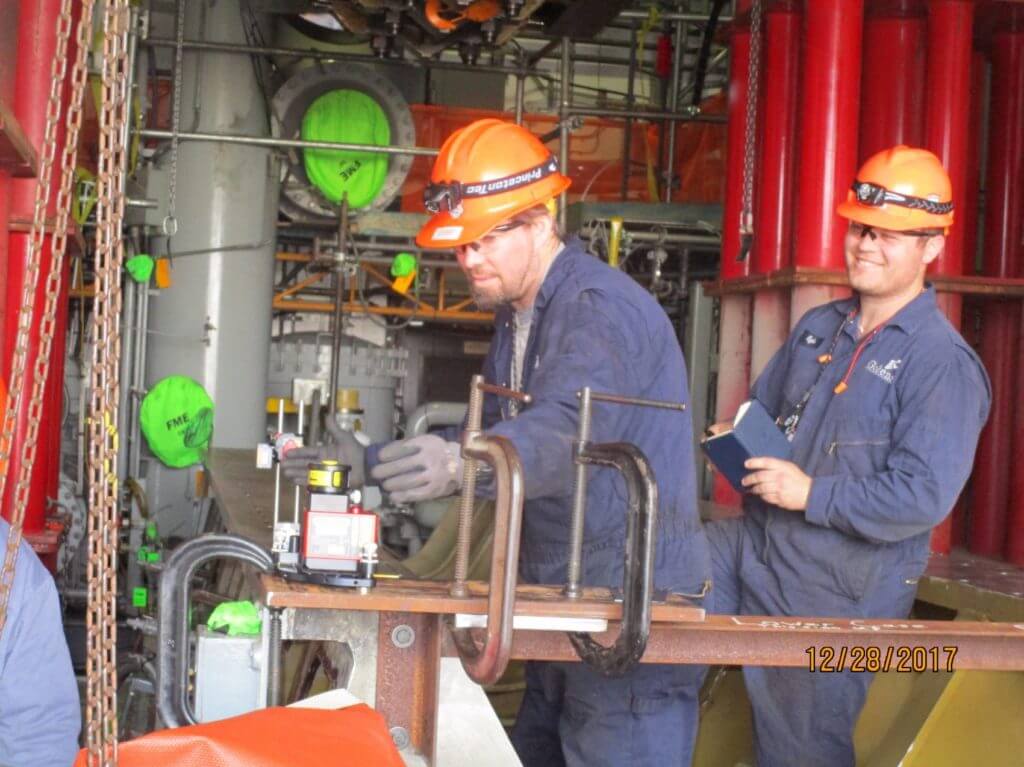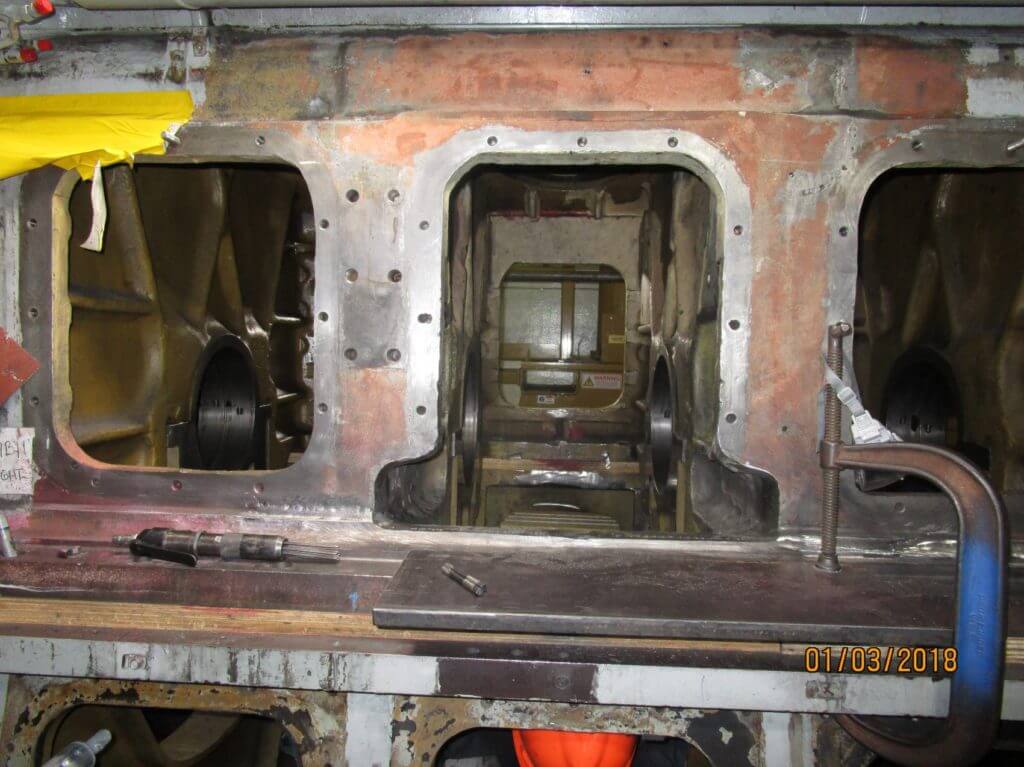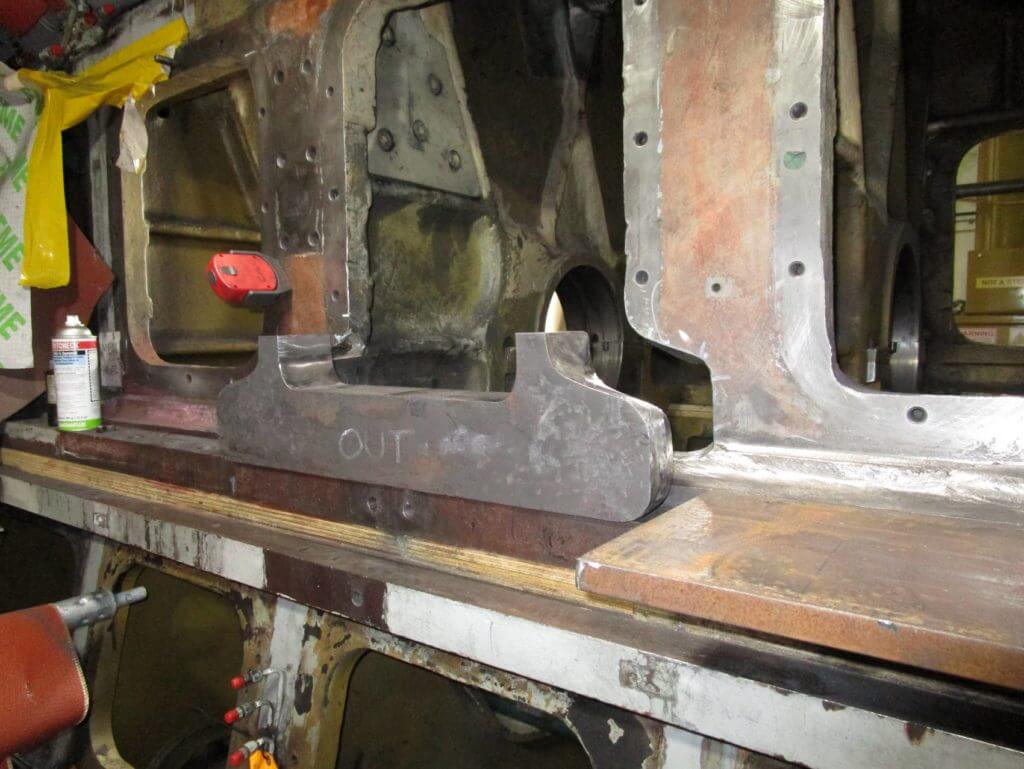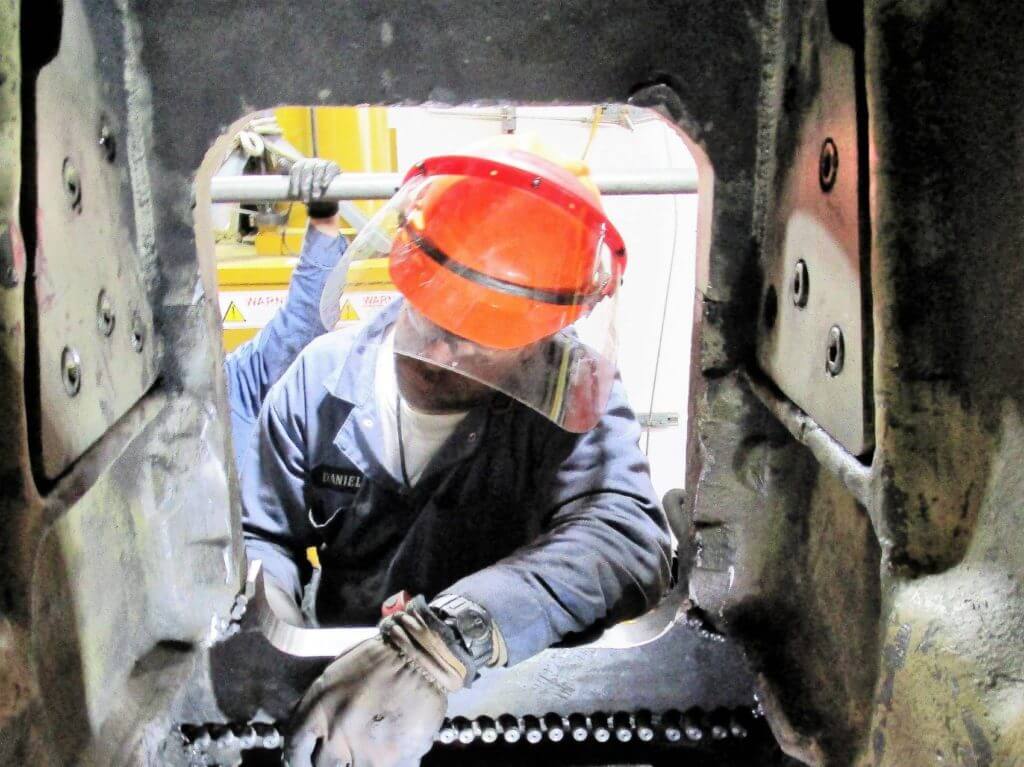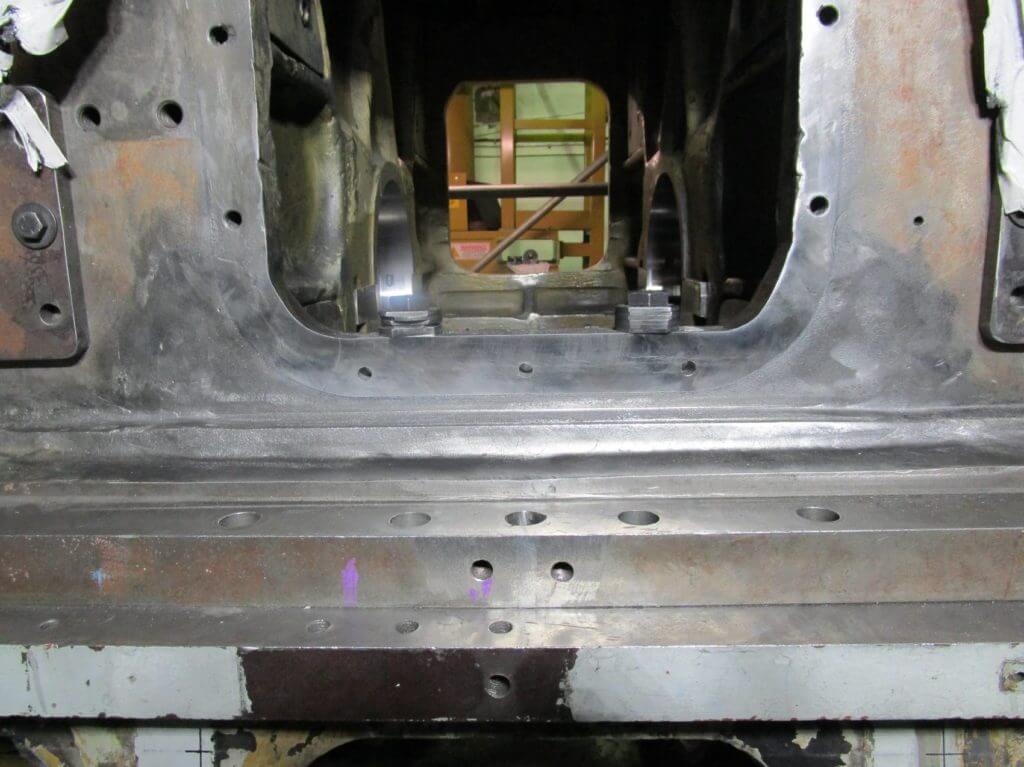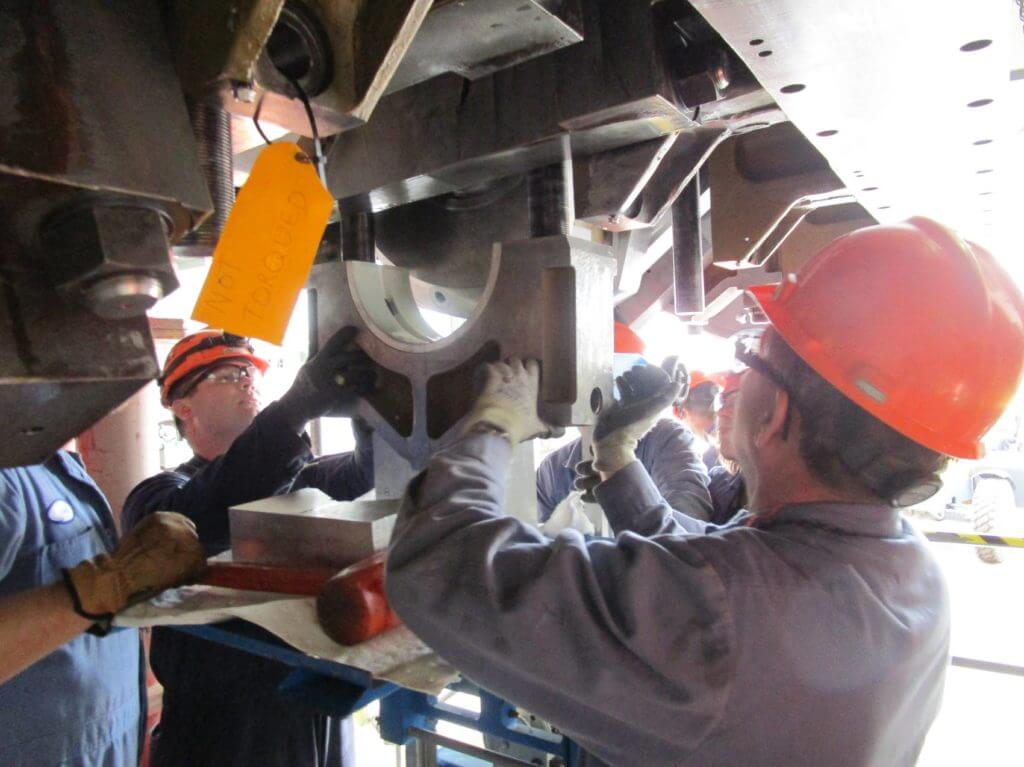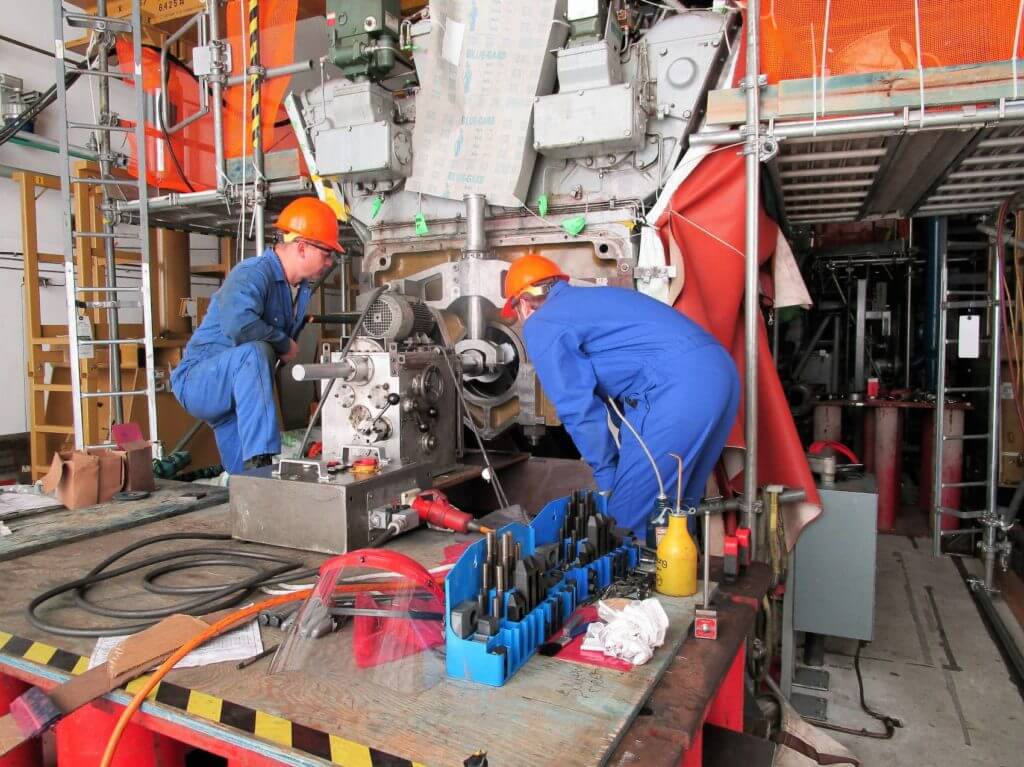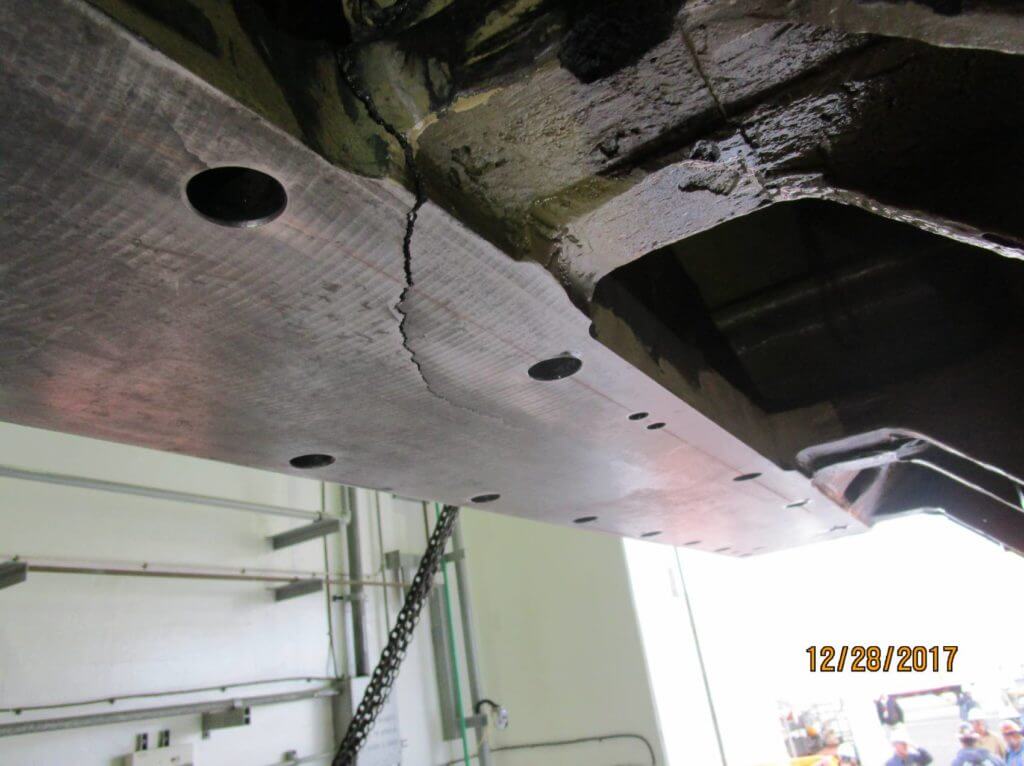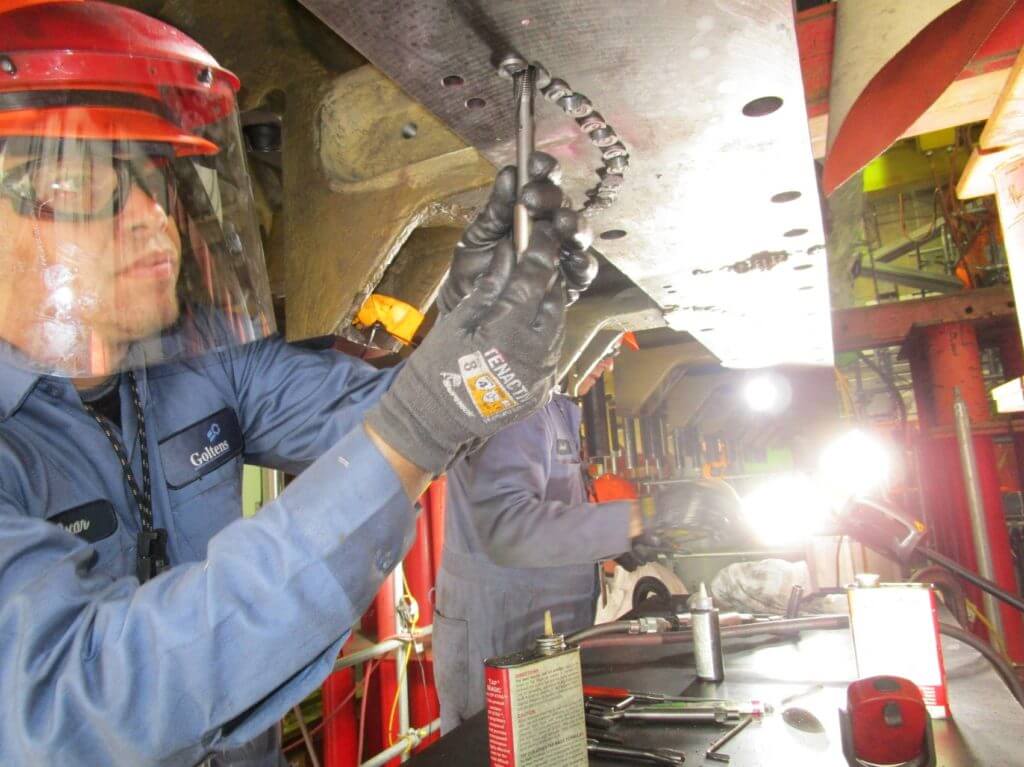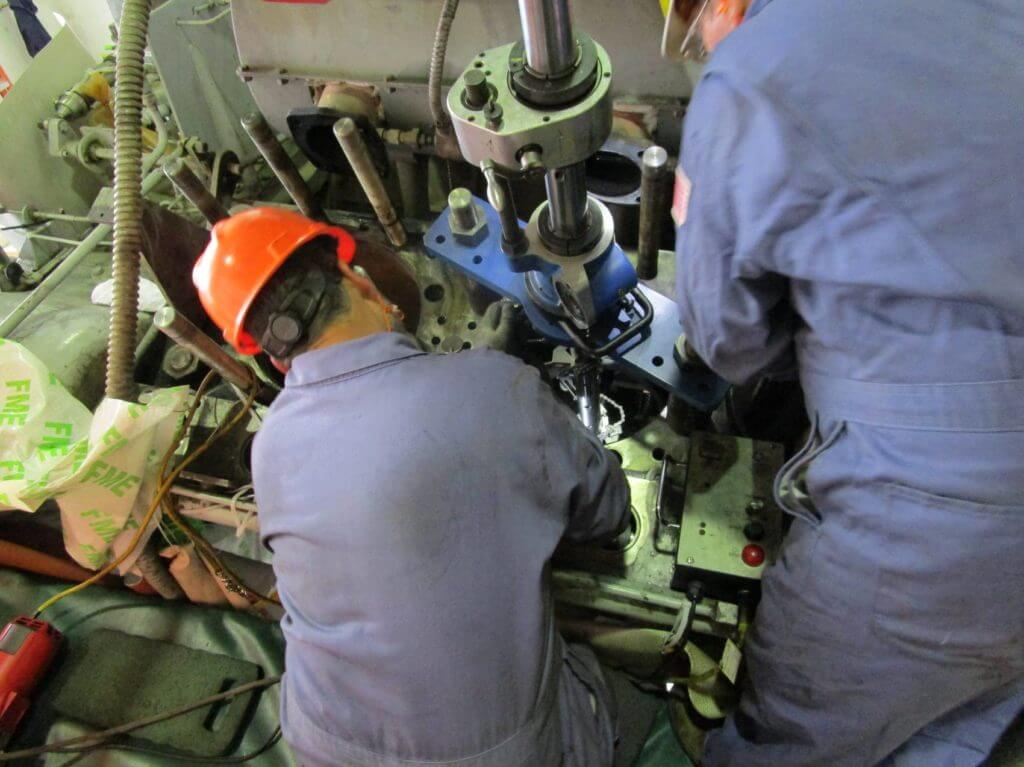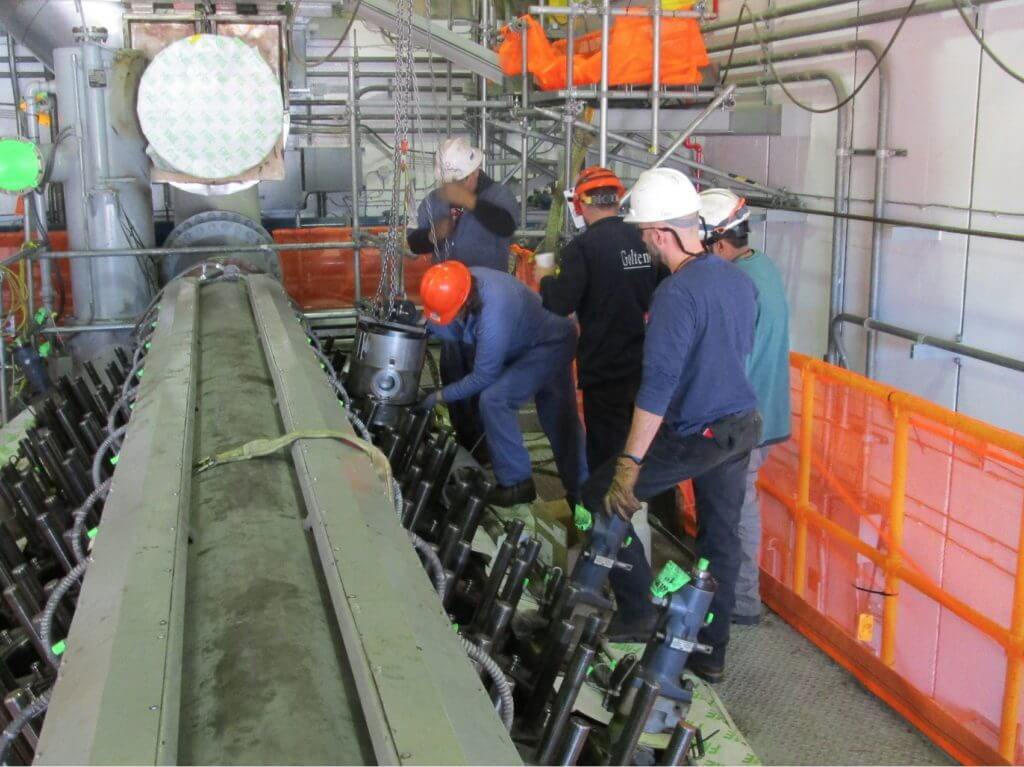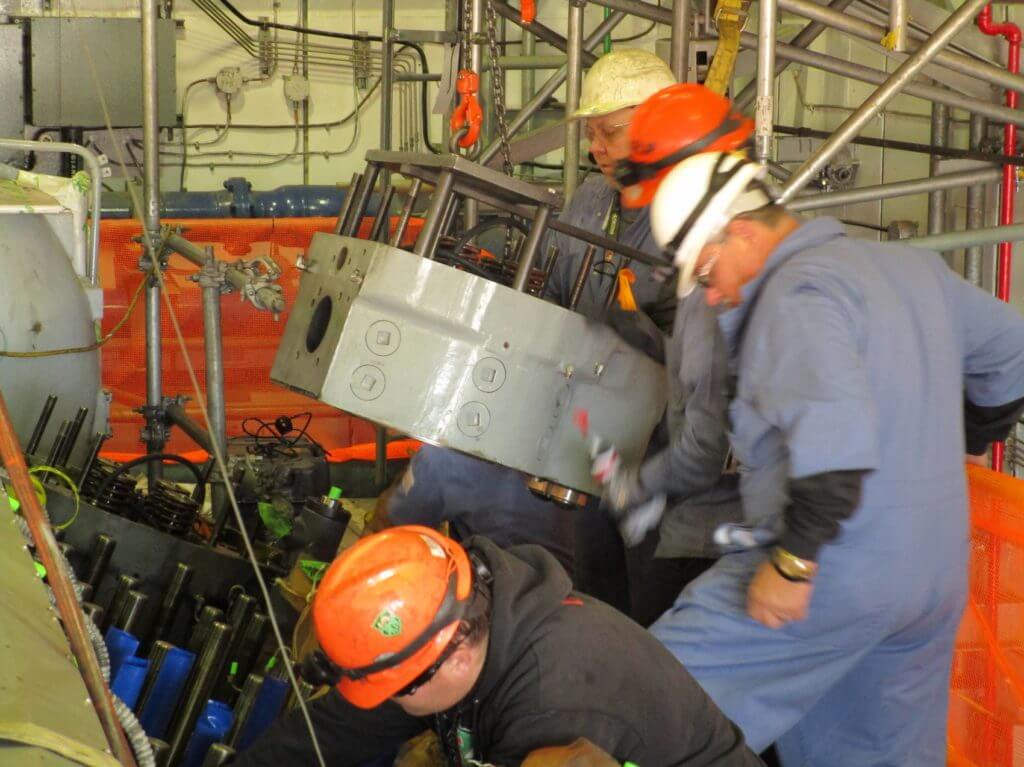Fast response and comprehensive repair for Arizona nuclear power plant
Metal stitching block repair, line boring and crankshaft replacement for emergency diesel generator
Within a nuclear power plant, emergency diesel generators (EDGs) are a vital part of plant safety systems. So when one is out of commission for any period of time, minimizing downtime is the number one priority.
Such was the case for Palo Verde III Nuclear Generating station in Arizona when one of their Cooper Bessemer KSV-20-T EDBGs experienced a casualty on connecting rods 9A and 9B. After checking Goltens’ reference from another crankshaft replacement done at a nuclear plant in the Midwest in 2015, Goltens was immediately invited to inspect the damage and make a proposal to restore the engine.
THE INSPECTION AND THE PROPOSAL
During the inspection, Goltens learned that the engine had suffered the same casualty on the same cylinders 30 years earlier. The block had significant damage to the crankcase near the doors, liner landings and the block mating surface and would require extensive metal stitching and machining. In addition, the crankshaft had significant mechanical damage and the engine would likely require line boring as well.
As the plant had a spare crankshaft on hand and the damaged shaft had to be removed for the line boring and engine block inspection/repair it was decided that the best course of action was to replace the shaft rather than repair in place. A 62-day LCO was approved by NRC, and all works were completed in 57 days. Goltens repair teams worked 24/7 to restore the engine achieving the timelines.
REPAIR EXECUTION
Just ahead of the Christmas holidays, Goltens deployed a total of 18+ team members to site including Project Management, Technical and QHSE management, along with two complete diesel teams to work around the clock on the repair. As one of the priorities for disassembly was the preservation of evidence for the engineering investigation, the process was more time consuming than in a non-nuclear environment.
The process and nature of the repairs required multiple lifting and lowering sequences of the block to complete the repairs. The major works after disassembly included:
- Block lifted and crankshaft removed
- Geometrical laser checks on the block mating surface and base-frame mating surface.
- Main bearing caps installed and laser bore alignment check and main bearing pocket calibration checks were carried out which confirmed the requirement to line bore the engine
- Comprehensive metal stitching of the block inside and outside of the crankcase.
- Localized machining on stitched areas to return block to original profile.
- Machining and installation of lower liner inserts
- Re-alignment of base frame
- Lineboring of the engine and laser check of the bore to confirm boring was within specifications.
Once complete, the block was lifted once again to allow for the installation of the new crankshaft and then lowered back into place to finish the rebuild of the engine.
PROJECT RESULTS
Once rebuilt, Goltens technicians, OEM representative and power station personnel completed operational checks on the engine prior to successful run in and 100% load testing. All program objectives were achieved resulting in another successful crankshaft replacement completed by Goltens for the nuclear industry. This engine repair was a first for the nuclear industry. A repair project of this type, with the scope and scale of this magnitude had not been attempted or approved by the NRC before. Collaboration and teamwork were critical aspects and essential to the successful execution of the project.
PROJECT FACTS
| Plant: | Palo Verde III |
| Engine Make: | Cooper Bessemer |
| Engine Model: | KSV-20-T |
| Rating: | 5,500 KW / 600RPM |
Download a PDF of this Resource
(Right click and select "Save File As..." or "Save Link As..." to save)
Download Now